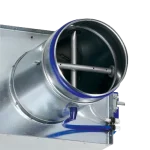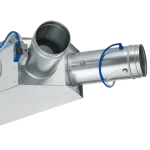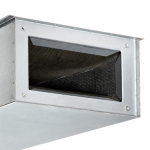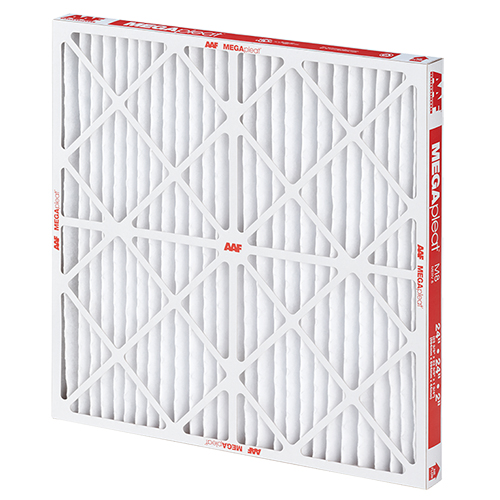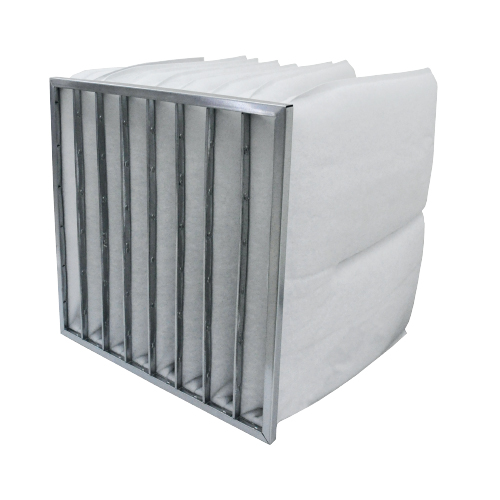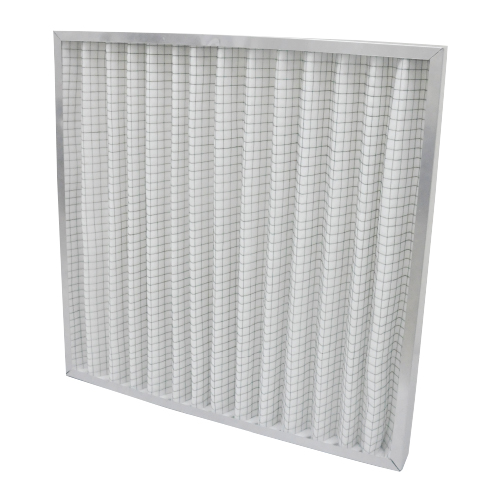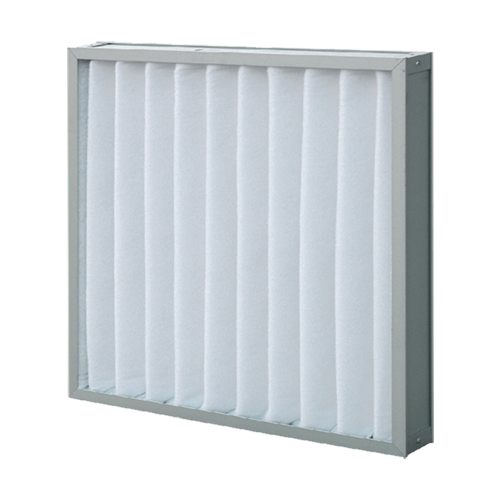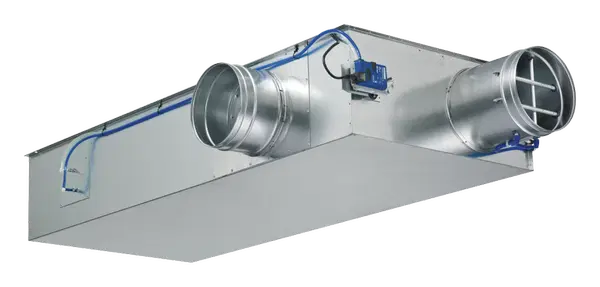

TVM

TVRK
July 4, 2022
TVLK
July 6, 2022TVM
FOR DUAL DUCT SYSTEMS
VAV dual duct terminal units for dual duct systems with variable volume flows in buildings with demanding acoustic requirements
- Individual temperature control for each room or zone
- Highly effective integral attenuator
- Electronic control components for various applications
- Closed blade air leakage to EN 1751, up to class 4
- Casing leakage to EN 1751, Class B
Optional equipment and accessories
- Acoustic cladding for the reduction of case-radiated noise
- Secondary silencer Type TS for the reduction of air-regenerated noise
Description
General Information
Application
- VAV dual duct terminal unit for use in ventilation and air conditioning systems
- Supply air control in dual-duct volume flow systems
- Closed-loop volume flow control using an external power supply
- For maximum acoustic and thermal comfort
- Demand-based mixing of cold and warm air
- Shut-off by means of switching (by others)
Special features
- Integral effective pressure sensor with 3 mm measuring holes (resistant to dust and pollution)
- Integral attenuator with at least 26 dB insertion loss at 250 Hz
- Factory set-up or programming and aerodynamic function testing
- Volume flow rate can later be measured and adjusted on site; additional adjustment device may be necessary
- Inspection access according to VDI 6022
Nominal sizes
- TVM-S: 125, 160, 200
- TVM: 125, 160, 200, 250, 315, 400
Variants
- TVM-S Dual duct unit, 60° spigot arrangement
- TVM-S-D Dual duct unit with acoustic cladding, 60° spigot arrangement
- TVM: Dual duct unit, 90° spigot arrangement
- TVM-D: Dual duct unit with acoustic cladding, 90° spigot arrangement
- Units with acoustic cladding and/or secondary silencer Type TS for very demanding acoustic requirements
- Acoustic cladding cannot be retrofitted
Parts and characteristics
- Ready-to-commission unit which consists of mechanical parts and control components
- Averaging effective pressure sensors for volume flow rate measurement, one in the cold air flow and in the total air flow respectively
- Damper blade
- Integral attenuator
- Inspection access
- Factory-mounted control components complete with wiring and tubing
- Aerodynamic functional testing on a special test rig before shipping of each unit
- Set-up data is given on a label affixed to the unit
- High control accuracy (even with upstream bend R = 1D)
Attachments
- Compact controller: Compact unit consisting of controller with potentiometers, effective pressure transducer and actuator
Accessories
- Double lip seals (factory-fitted)
Useful additions
- Secondary silencer Type TS
Construction features
- Rectangular casing
- Spigot on the fan end suitable for circular ducts to EN 1506 or EN 13180
- Spigot with groove for double lip seal
- Connection on the room end suitable for ducts
- Baffle plate is fitted after the damper blade for optimum aerodynamic performance
- Position of the damper blade indicated externally at shaft extension
- Thermal and acoustic insulation (lining)
Materials and surfaces
- Casing and damper blade made of galvanised sheet steel
- Damper blade seal made of TPE plastic
- Lining is mineral wool
- Effective pressure sensor made of aluminium
- Plastic plain bearings
- Shaft and linkage made of galvanised steel
Variant with acoustic cladding (-D)
- Acoustic cladding made of galvanised sheet steel
- Lining is mineral wool
- Rubber elements for the insulation of structure-borne noise
Mineral wool
- To EN 13501, fire rating class A1, non-combustible
- RAL quality mark RAL-GZ 388
- Non-hazardous to health thanks to being highly biosoluble in accordance with the Ordinance on Hazardous Substances and Note Q of the European Directive (EC) No. 1272/2008
- Faced with glass fibre fabric as a protection against erosion from airflow velocities of up to 20 m/s
- Inert to fungal and bacterial growth
Standards and guidelines
Fulfils the hygiene requirements of
- EN 16798, Part 3
- VDI 6022
- DIN 1946, Part 4
- Further standards, guidelines in accordance with hygiene certificate
Casing leakage
- EN 1751, Class B
Closed blade leakage
Nominal sizes 125 and 160
- EN 1751, Class 3
- Fulfilment of the general requirements of DIN 1946, Part 4, with regard to the acceptable closed blade air leakage
Nominal sizes 200 to 400
- EN 1751, Class 4
- Fulfilment of the increased requirements of DIN 1946, Part 4, with regard to the acceptable closed blade air leakage
Maintenance
- Maintenance-free as construction and materials are not subject to wear
Download
Product Information
Certificates
Operation Manuals

